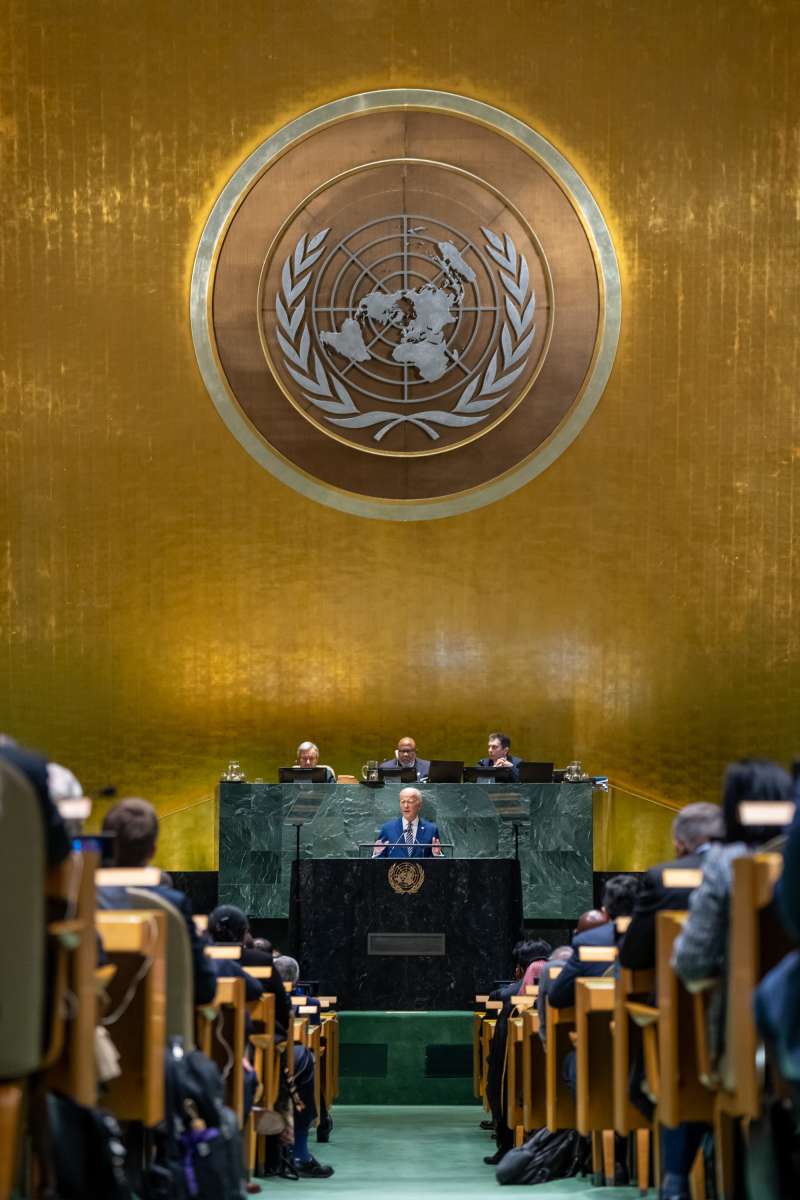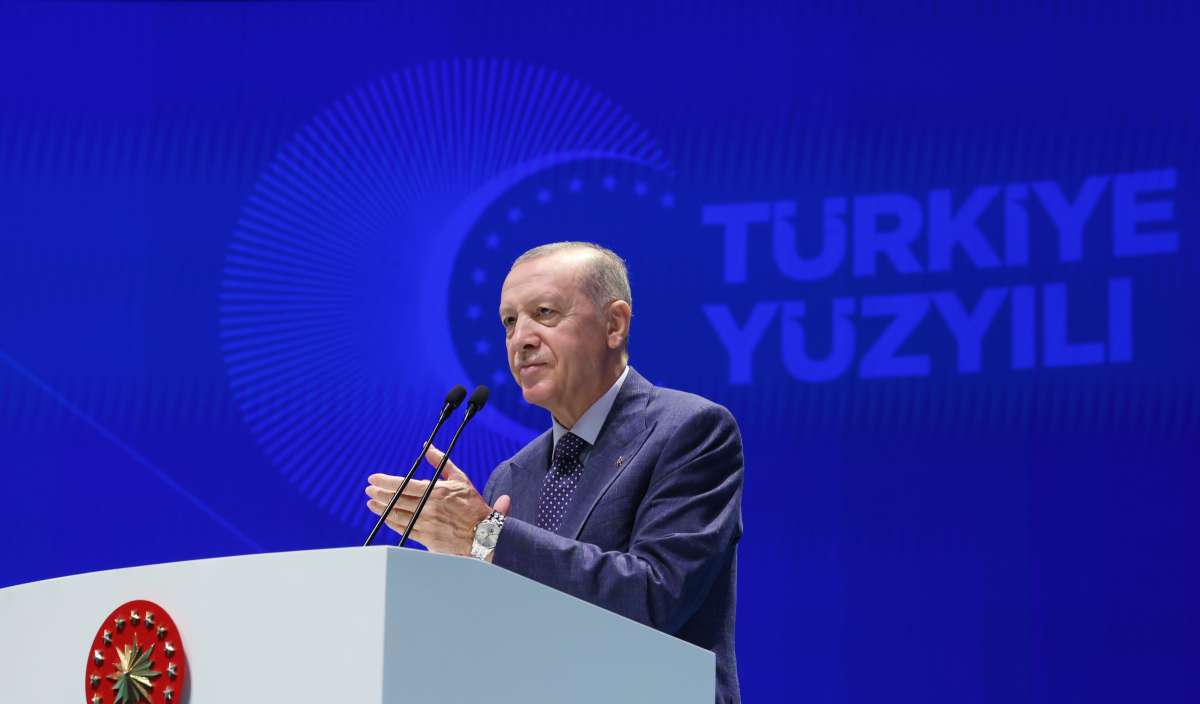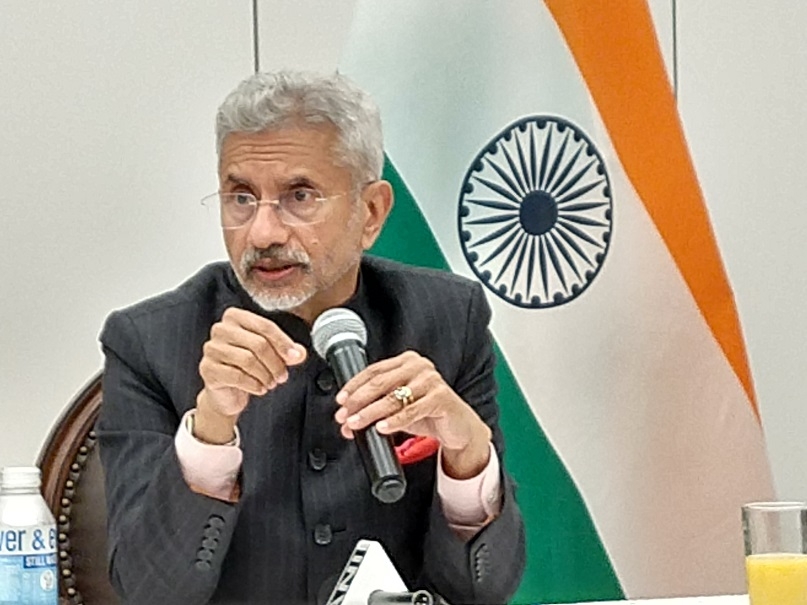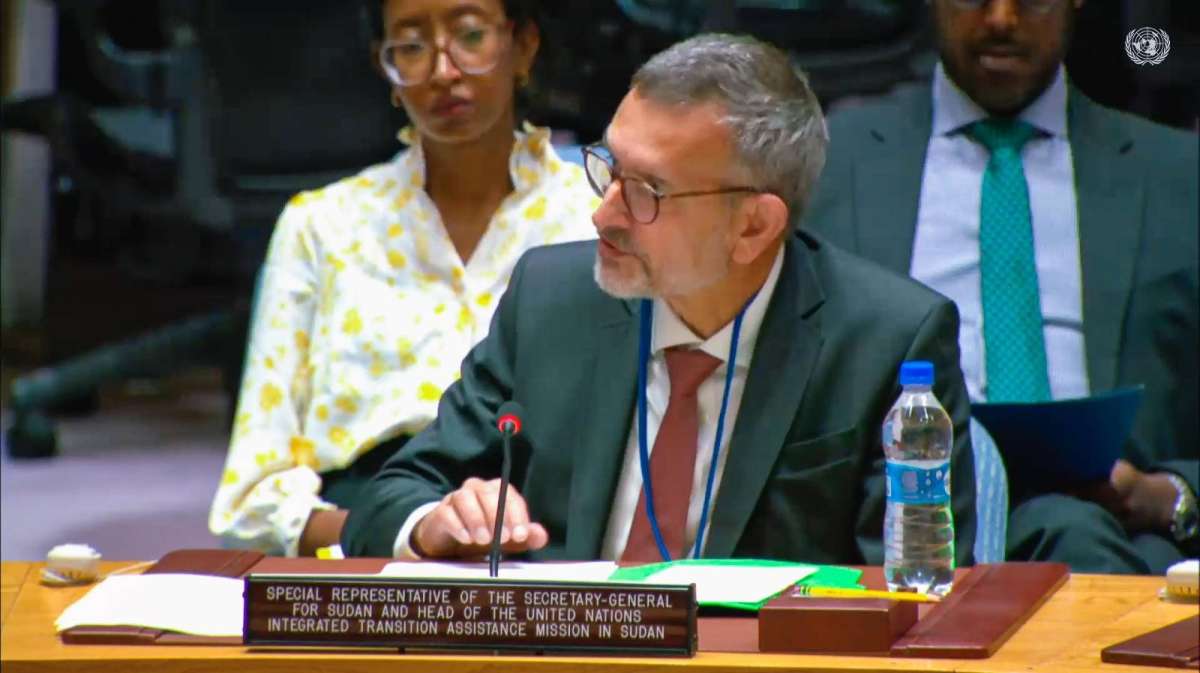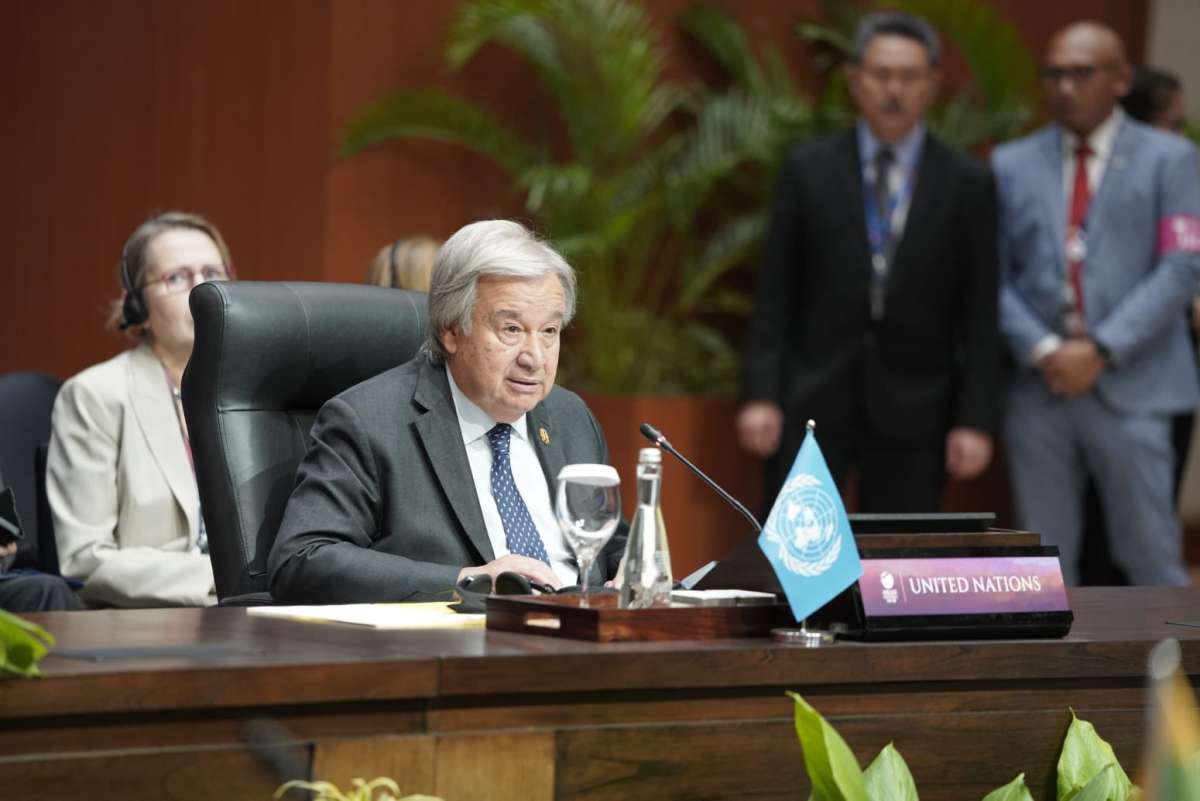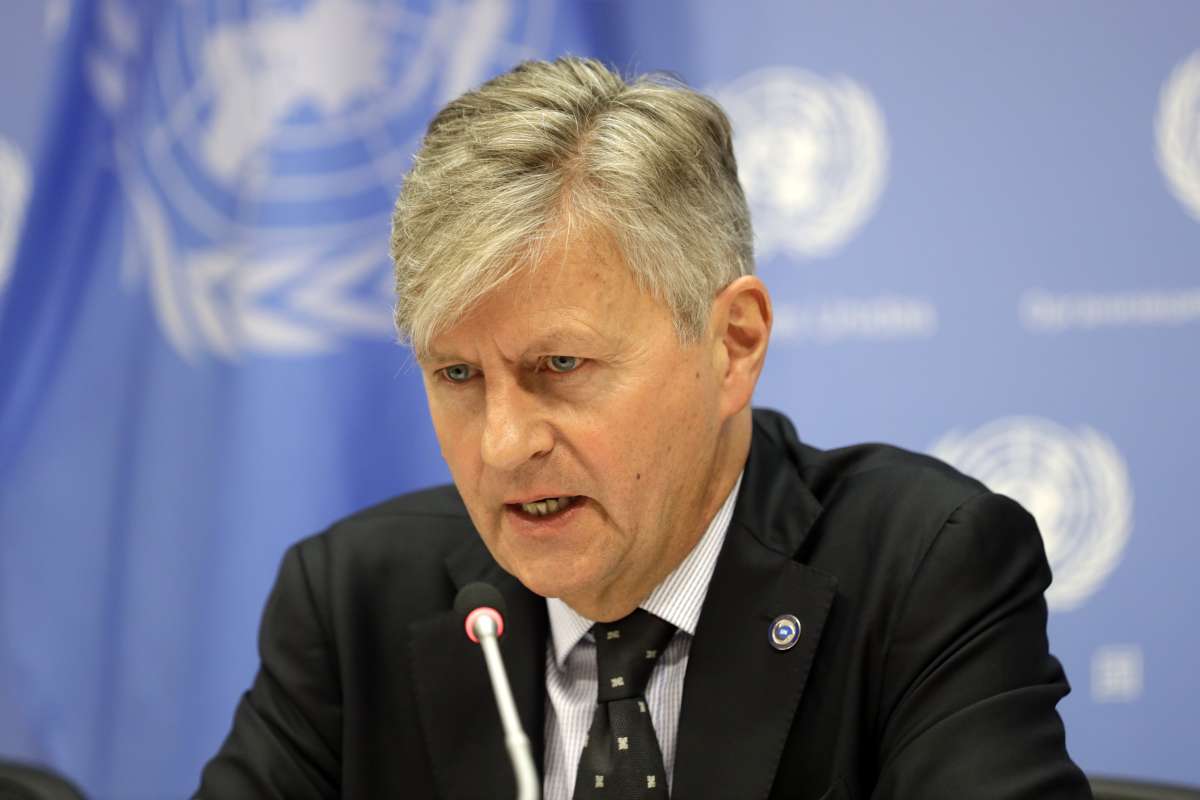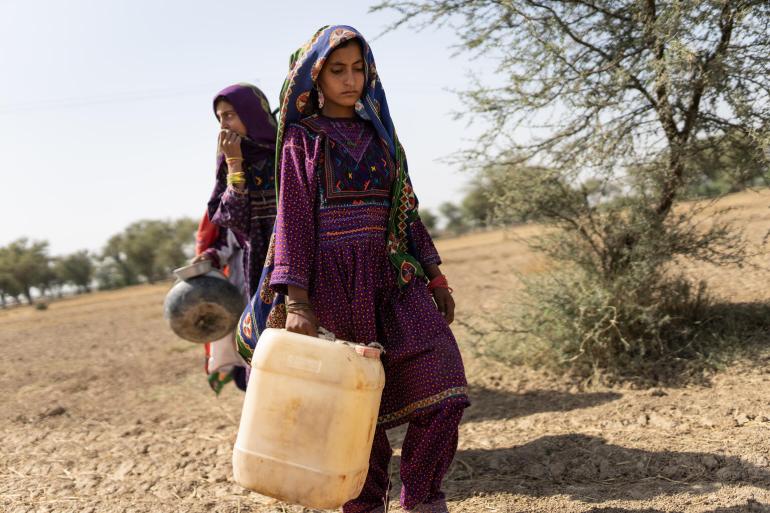In a stern message to Russia, Biden called upon the world leaders at the UN General Assembly to stand up to the “naked aggression” and deter other would-be aggressors…reports Asian Lite News
Reaffirming Washington’s support for Ukraine at the United Nations General Assembly in New York, US President Joe Biden said that the US, with its allies and partners around the world, will continue to stand with the “brave people of Ukraine” in defending their sovereignty and territorial integrity.
Biden’s remarks came at the 78th session of the United Nations General Assembly which is taking place in New York.
Biden said, “Russia believes that the world will grow weary and allow it to brutalize Ukraine without consequence. But I ask you this: If we abandon the core principles of the UN Charter to appease an aggressor, can any member state feel confident that they are protected?
In a stern message to Russia, Biden called upon the world leaders at the UN General Assembly, “If we allow Ukraine to be carved up, is the independence of any nation secure? The answer is no. We must stand up to this naked aggression today to deter other would-be aggressors tomorrow.”
“That is why the United States together with our Allies and partners around the world will continue to stand with the brave people of Ukraine as they defend their sovereignty and territorial integrity – and their freedom,” Biden added.
The first day of the high-level general debate is taking place at the 78th United Nations General Assembly.
“The United States seeks a more secure, more prosperous, more equitable world for all people, because we know our future is bound up with yours. And no nation can meet the challenges of today alone,” the US President said.
Moreover, US President Joe Biden also highlighted the issue of climate change and ongoing wildfires ravaging North America and Southern Europe.
He said, “Record breaking heatwaves in the United States and China. Wildfires ravaging North America and Southern Europe. A fifth year of drought in the Horn of Africa. Tragic flooding in Libya that has killed thousands of people. Taken together these snapshots tell an urgent story of what awaits us if we fail to reduce our dependence on fossil fuels and begin to climate-proof our world.”
More than 140 world leaders are meeting to discuss the pressing world issues at the 78th session of the ongoing United Nations General Assembly (UNGA) in New York City.
Notably, US President Joe Biden is the only representative among the five permanent members of the UN Security Council who is attending the UNGA.
Ukrainian President Volodymyr Zelenskyy will attend the General Assembly for the first time since Russia launched a full-scale invasion of his nation in February 2022.
One of the most anticipated annual UN events, the General Debate, provides a platform for leaders to discuss topics of worldwide concern in 15-minute statements. While speakers at the General Debate are free to discuss whatever they like, each year’s event is framed by a broad theme, according to Al Jazeera.
This year, the theme is “Rebuilding trust and reigniting global solidarity”. (ANI)
Zelenskyy attacks Russia
In a rousing speech at the United Nations on Tuesday, Ukrainian President Volodymyr Zelenskyy lashed out at Russia, accusing it of “weaponising” food and energy and attacking children during the war in Ukraine reported the New York Post.
Zelenskyy framed Russia’s war on his country as an attack on the “international order” and urged the world leaders to “act united to defeat the aggressor”
“Let unity decide everything openly,” Zelenskyy said. “While Russia is pushing the world to the final war, Ukraine is doing everything to ensure that after Russian aggression no one in the world will dare to attack any nation.”.
“Weaponization must be restrained, war crimes must be punished, deported people must come back home and the occupier must return to their own land. We must be united,” he said, to spirited applause,” the New York Post quoted Zelenskyy as saying.
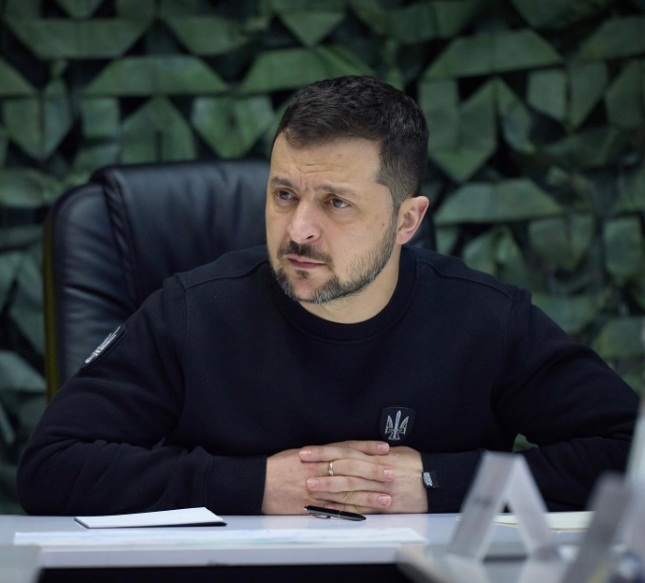
Zelenskyy had begun his speech slamming Russia for “weaponising food, energy and attacks on children against Ukraine”.
“We know the names of tens of thousands of children…kidnapped by Russia in the occupied territories of Ukraine and later deported. The International Criminal Court issued international arrest warrants for Putin for this crime. We are trying to get children back home but as time goes by…what will happen to them?” he asked.
He added, “For the first time in modern history, we have a real chance to end the aggression on the terms of the nation that was attacked. And this is a real chance for every nation… to have the same outcome if attacked”.
In an apparent reference to the death of Wagner Group chief Yevgeny Prigozhin, Zelenskyy said, “Evil cannot be trusted”.
The embattled leader took the stage hours after US President Biden, who also urged international unity against Russia’s offensive.
Addressing the 78th UNGA session, Biden reaffirmed Washington’s support for Ukraine and said that the US, with its allies and partners around the world, will continue to stand with the “brave people of Ukraine” in defending their sovereignty and territorial integrity.
ALSO READ-US releases $6bn of Iran’s oil revenues ahead of UN meet

